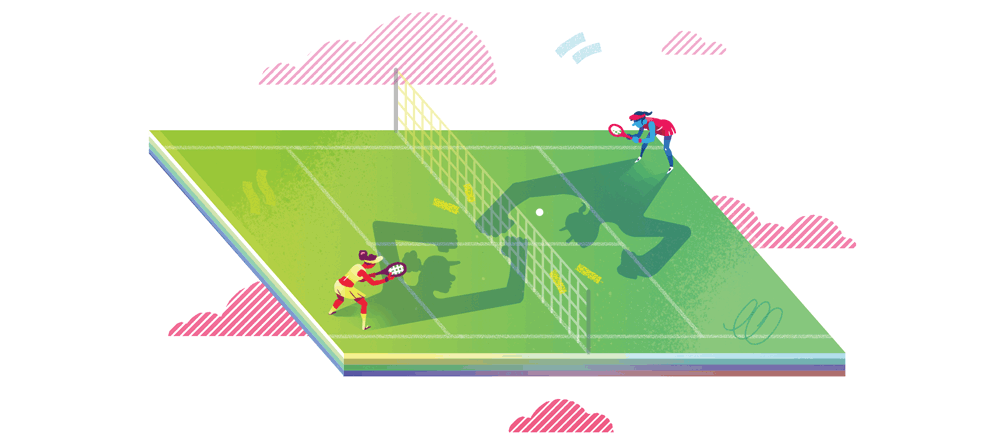Protect & Serve

Image: Nick Iluzada
IN RESIDENTIAL Lake Oswego, the Mountain Park Racquet Club typifies an architectural style best dubbed Supreme ’70s Resort. I am here to play in City League, as players call it—a metro-wide women’s tennis alliance that fosters friendship, competition, and an unsettling mix of the two.
City League stretches from Portland proper into the suburbs, and includes teams from publicly owned facilities—the Vancouver Tennis Center, for example—and squads fielded by private establishments like the Multnomah Athletic Club, the Irvington Club, and West Hills Racquet Club. Public or private, the league was not exactly designed for the working class. With matches in the middle of weekdays, September through May, City League attracts women with flexible, or minimal, schedules, for whom tennis is a primary passion and pleasure. Most players are in their 40s or 50s; younger players breastfeed post-match. The woman who won a track-and-field Olympic gold for Russia looks younger than her age.
At season’s end, City League’s best teams move up in a tiered divisional structure; the worst move down. No one wants to move down.
When a rival player questions your line call, they’re basically calling you a cheater.
Today, as my doubles partner and I trade hits with our opponents during the warm-up, one rival smacks one ball and then another high on my right side. Perhaps she hasn’t noticed I’m a lefty. “Could you put it on the other side of me, please?” I ask in a friendly way (I think).
“Oh my God, I’m not trying to do it!” she shrieks. “Tennis split-personality disorder” is a common City League affliction. “She’s a nice person off the court” is one way of saying that she’s a barracuda when it’s game on. (I admit that it takes one to know one.)
In another match, an opponent who works in law enforcement disagrees with one of our line calls. (City League players generally officiate themselves.) She tosses comments across the net our way and to her partner the rest of the match. We hear: “It’s too bad. They’re better than that. They don’t need to play that way.” When someone questions a line call, they’re basically calling you a cheater. I imagine the Taser in my rival’s tennis bag and keep my mouth shut as my partner and I lose.
School pickup is in 20 minutes, so we skip the lunch the home team traditionally provides. Lunch can be serious: when I once found myself up at midnight making pear, goat cheese, and walnut sandwiches on sliced Como, I knew I had to get a grip. And while the food can be worthy of a Martha Stewart holiday feast, the conversation between rival players is usually stilted at best.
We hit I-5 North, where the white lane markers look just like the tennis court’s boundaries, and we barrel home, always staying just inside the lines.



